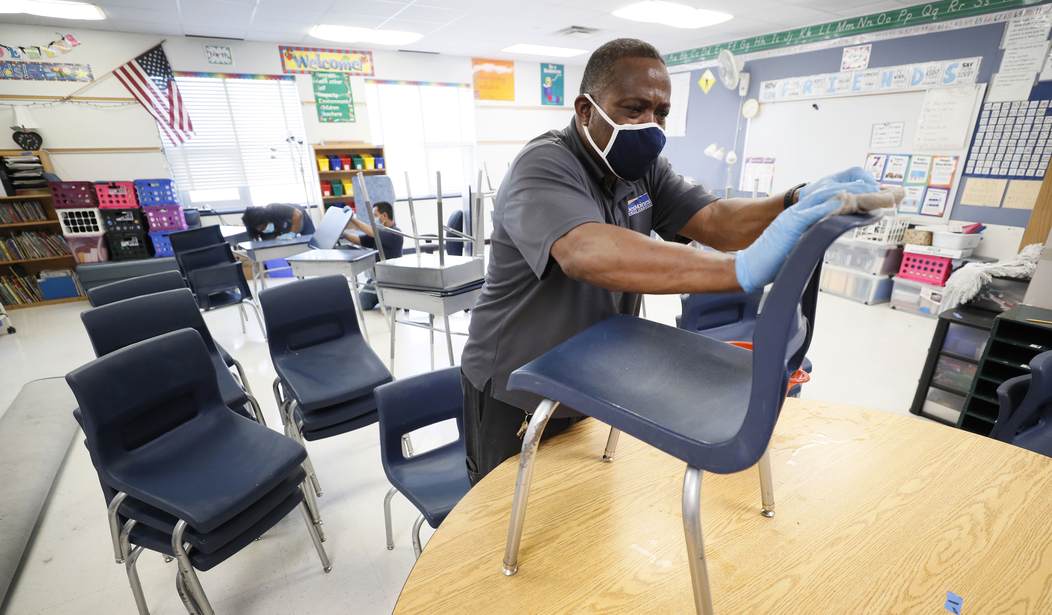COVID-19 has fundamentally changed our society. No segment of the population feels this more profoundly than our school-aged children. Early in 2020, when the virus was still poorly understood but rapidly spreading across the globe, children were abruptly pulled from in-person schooling. The reasons made sense, then: try to slow the virus’s spread and provide time to prepare for the contagion. This approach was successful in many regards, as the American healthcare system was able to increase capacity and avoid being overwhelmed.
As the new school year draws near, officials in many districts still fear COVID-19 and are again considering shuttering in-person schooling. However, given that the original intent of the shelter order has been achieved, there is no longer justification for these draconian measures.
Sure, COVID-19 can infect anyone at any age. But if we’ve learned nothing else since the world shut down in March, we’ve learned the virus poses a threat largely to the elderly and those with multiple co-morbidities. It is very uncommon for school-aged children to develop serious illness and exceedingly rare for an infected child to die. Though each death is a tragedy, as of this writing, 64 children in the United States have died as a result of COVID—approximately the same death rate among children as bicycle accidents, yet bikes are no less common children’s gifts for Christmas and birthdays.
Recognizing this paucity of danger to children, several teachers' unions support keeping school doors shut over concerns that children could instead transmit infection to teachers. This is indeed a valid concern for some older teachers, and they deserve every measure be taken to safe-guard their health and lives.
But there simply aren’t enough teachers in this high-risk group to justify the full closure of our schools. Most teachers are relatively young (median age 41) and at low-risk. From February to August, 2,728 people age 35-44 died from COVID-19 in the United States. That’s less than 2% of the 142,000-plus COVID-related deaths over the same time span. At this rate, over a year’s time would still see fewer than the 6,385 36-45-year-olds who died in automobile accidents in 2006.
Recommended
In other words, it’s reasonable to conclude that a teacher is more likely to die in a car crash driving to school than from COVID-19 contracted at school.
Keeping schools open is especially important when considering that 80 percent of COVID deaths have occurred in individuals over age 65. COVID is so age dependent that those 85 years of age and older are 10,000 times more likely to die from COVID-19 than those 5 to 17-years-old. Thus, it inverts logic to close schools to protect the elderly.
Think about it like this: If there were an infection that almost exclusively killed the young, would we respond by closing the elder care facilities? Not likely.
This poorly placed emphasis is especially true when we consider the substantial harms these measures have on children. It’s well-known that disruptions in education result in decreased life-time earning potential. We also know that decreased life-time earnings lead to premature death and that the bottom 1 percent of wage earners lose as many as 15 years of life. Thus, closing schools in an attempt to protect today’s elderly may damn our children to premature deaths when they are elderly.
This is why it is critical that instead of school closings, we focus our time and funding on improving the safety of nursing homes where more than 40 percent of all COVID-related deaths have occurred. This way we can protect the elderly without hurting the children.
COVID-19 is a serious infection and no matter your age there will always be some risk. However, risk is part of the human condition. To paraphrase, “We are soft squishy things in a world of sharp pointy things.”
Instead of falsely believing that we can eradicate all risk to all people in all places, we need to calmly and rationally assess all risks for what they truly are and work to minimize risk while protecting the most vulnerable. Doing otherwise will create an entire generation of young victims who get to suffer the consequences of our misguided fear-based policymaking for the rest of their lives.
Open the schools.
Dr. Chad Savage is the founder of YourChoice Direct Care in Brighton and a partner of the Job Creators Network Foundation.
























Join the conversation as a VIP Member